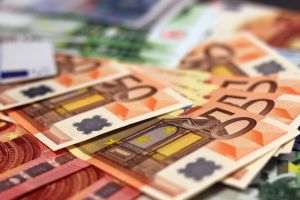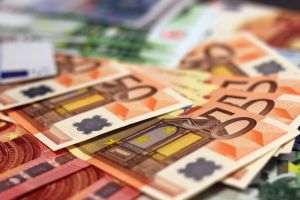• The report of the European Commission has been sent to the companies targeted by the probe
The Competition Council (CC) has sent the Report of the European Commission (EC) concerning the investigation of the Romanian fuel market to the companies operating in the industry.
Constantin Tampiza, the advisor of the president of "Lukoil" for the projects of Romania, said that the report sent a few days ago by the EC contains about 100 pages.
Players in the industry all said in unison that they would express their opinions on the report after having analyzed it and after the completion of the legal procedures which are still ongoing at the Competition Council.
These procedures, which consist of the hearing, by the end of this year, of companies in the domestic oil market, are the final steps prior to the final outcome of the investigation.
Thus, according to Bogdan Chiriţoiu, the president of the Competition Council, the first stage of the investigation which began six years ago will be completed.
One thing is certain: for the first time after all these years, some information concerning the goal of the investigation has surfaced.
In this respect, "OMV Petrom" said: "< OMV Petrom > has received a report about an investigation conducted by the Competition Council concerning the alleged violation of the regulations concerning competition, due to the pulling from the market of the "Eco Premium" (unleaded gas with lead substitute added). (...) The findings of the investigation of the Competition Council, including the potential sanctions, will be mentioned in the final decision of the Competition Council, which will be issued after < OMV Petrom > will have provided a response on the current version of the investigation report and after the hearing with the Competition Council".
The company considers that this "alleged violation is groundless" and notes that it will take all the necessary steps to ensure a fair representation of all the relevant facts which would be reflected in the final decision of the Competition Council.
The officials of MOL Romania said: "On November 14th, MOL Romania received the report of the Competition Council concerning an investigation on the alleged violation by companies operating on the Romanian wholesale and retail vehicle fuel distribution market (gas and diesel fuel), and of the provisions of the Competition law, by restricting and controlling output, distribution, technical development or investments".
"Rompetrol" representatives said: "The report of the Council concerns the alleged violation by companies operating on the market for the distribution of vehicle fuel of the provisions of the Law of Competition by limiting or controlling the production, sale, technical development or investments, pertaining to the pulling from the market of the Premium (Eco Premium) gas. (...) We maintain that all of the operations and actions of the < Rompetrol > Group in Romania were conducted in compliance with the legislation in the field".
According to "OMV Petrom", during the period of the "the alleged violation", "Eco Premium" had a market share of about 2% of the Romanian fuel market: "The decision to pull < Eco Premium > from the market was made based on environmental and economic considerations, while adequately taking into account the interests of consumers".
This year, the Competition Council sent a document to the European Commission which stated that it has suspicions concerning collusion among the oil companies operating on the Romanian market.
The targeted companies, which include "OMV Petrom", "Rompetrol", "Lukoil" and MOL, will have a window of 30 days available to express their opinions on the report sent to the European Commission by the Competition Council.
Having been launched several years ago, this investigation "began working right two years ago", according to Mr. Chiriţoiu, who said, a few months ago, in an interview: "The first unannounced inspection of companies in the field took place in September 2009, and the investigation team was also replaced at that time. Prior to 2009, the Competition Council moved a lot slower, because it had no deadlines to meet. The Council became more efficient in 2007, it took a while for it to get its act together, until it learned to investigate... Starting in 2007-2008 it began being more active".
Concerning the report of the European Commission in this case, Bogdan Chiriţoiu said: "The final decision lies with us, but what's important is also the feedback from Brussels, because the role of the Commission is to ensure compliance with the treaties, thus avoiding having every state construe them in its own manner. If the people in Brussels tell us that there is not enough evidence concerning a certain aspect or that a certain interpretation is wrong, we take that into account".
In January, the National Tax Administration Agency (ANAF) drew up a report concerning the makers and distributors of fuel, which states that the price of fuel at the pump was unreasonably raised in 2010, without being influenced by the evolution of the price of crude oil, the exchange rate and the taxes levied by the state, while almost all of the companies posted significant losses, as the profits were not reported adequately. PM Emil Boc said, at the time, that the raise of fuel prices could not be justified using the fiscal burden caused by the taxes imposed by the state and has asked the ANAF to initiate the general fiscal inspection in the case of oil companies, as well as asking the Competition Council to perform additional checks in order to identify possible antitrust cases.



























































